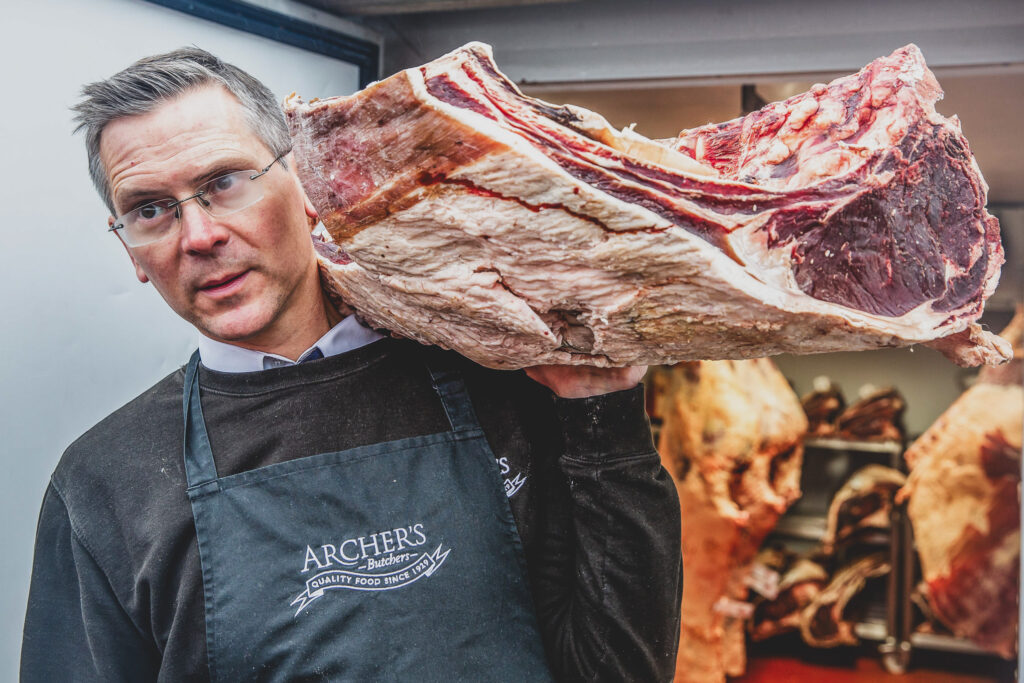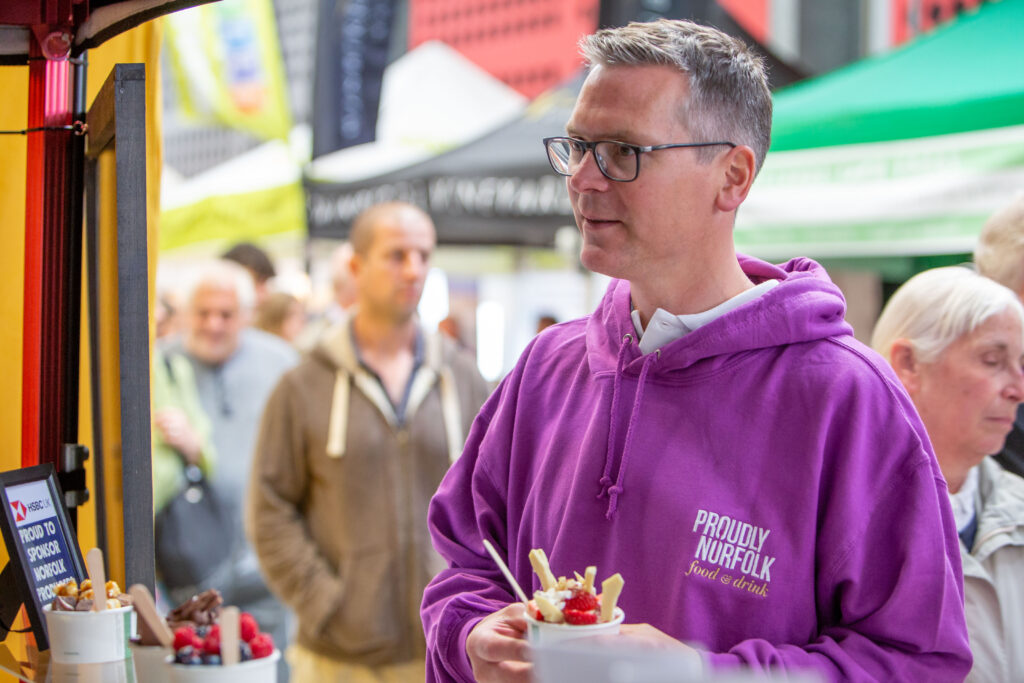Creating a reputation for Archer’s Butchery for all the right reasons.
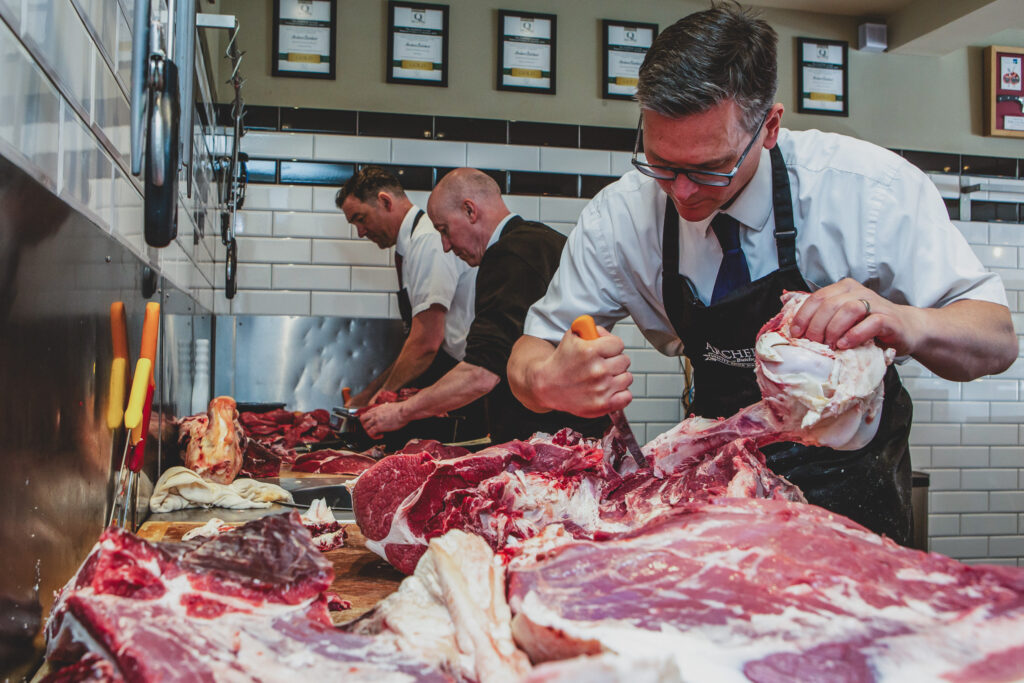
I was recently started down with Lee Blanchflower and Blanc Creative, who we’ve worked with for many years documenting our business and capturing snapshots of our suppliers, our staff and of course, our food.
They were writing an article about the shop so, I thought it would be a good opportunity to chat about why the business is so important to the community and why everybody in our team are so passionate about standing out for all the right reasons.
We hope you’ll find the interview both genuine and engaging.
Lee:
Jamie, I’d like to start by asking if you can shed a little light on the business, origins and history.
Jamie:
Archer’s has been around for nearly a century, and over the years, and genuinely we’ve become a bit of an institution, but for all the right reasons.
We’re still very much a family-run business, Now in its third generation, our son Will works here, so we’re setting the bar in the right place for a fourth generation.
Dad still has an input, he looks after our deliveries and I can’t ever seeing him stepping away from the shop if I’m honest.
When it’s your own shop and it’s a generational business, there’s a lot of pressure to succeed, especially because for decades, we’ve been deliver only the best, from the produce to sell to the service we give every customer.
It might seem a bit cliche’d, but customers also see our staff as part of the Archer’s Butchery family. We’ve got some very long-serving cream members and when our customers come into Archer’s, they’re not just here for the quality products but for the sense of familiarity and history.
We’ve been on the high street for a long time, and we’re grateful for our loyal customers who keep coming back.
They always have kind words about our business, and it’s their support that keeps us going.
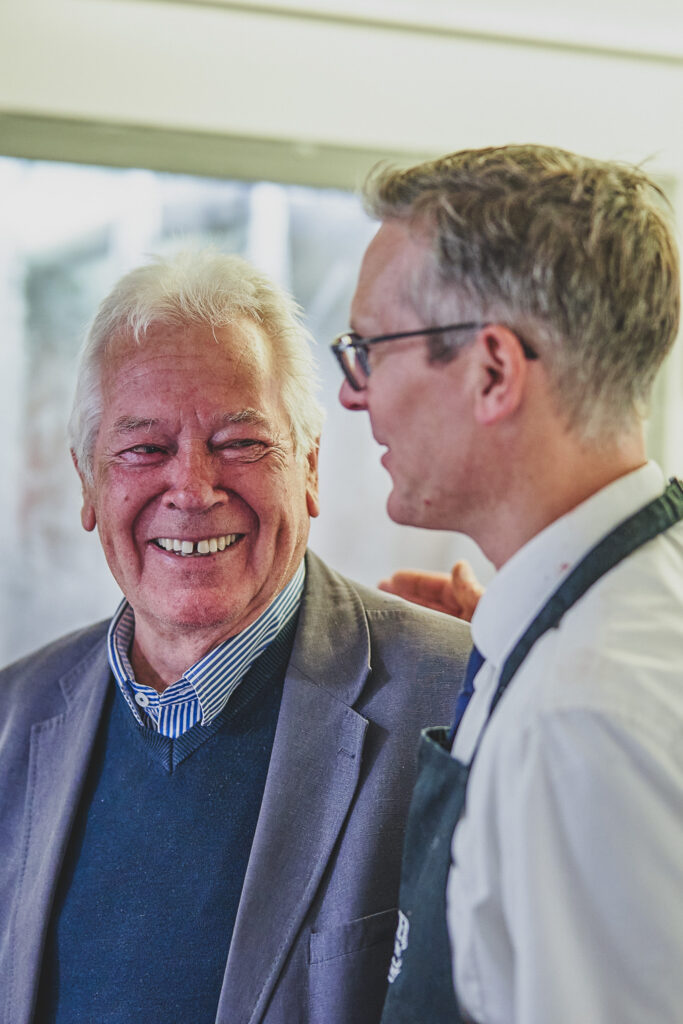
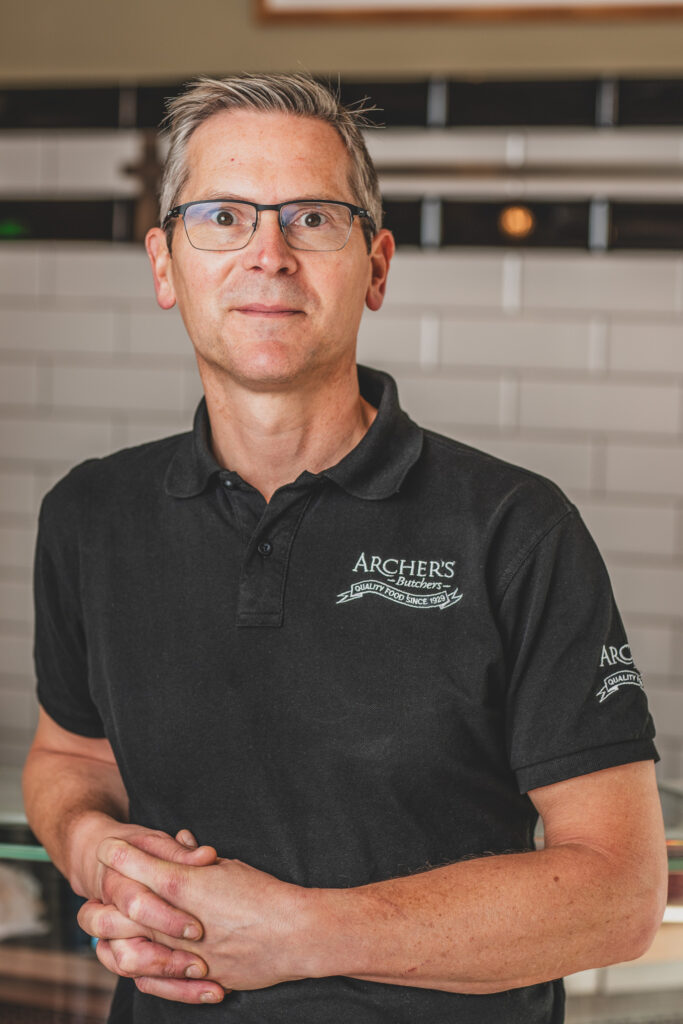
Lee:
So why do people rave about the quality of your Archer’s Butchery produce, so much. There must be a point where a cut of meat from one butcher is very much the same as every other butcher.
Jamie:
(After smiling and letting out a very quiet laugh) Not at all. If we sold ‘average’ products here, I honestly don’t think we would still be trading after all this time. Our customer’s come to us, excluding the fantastic service, for four main reasons.
That’s Heritage, Provenance, Suppliers and Care, and I’ll mention each of these so our customers have a little understanding about what that means when you publish this.
Heritage is about rich traditions. It’s the history we have associated with the craft of butchery. It’s about time-honoured techniques passed down through generations.
These methods include specific ways of cutting, curing, and preparing meat that maintain the quality and flavour of the product.
Many butchers’ shops like Archer’s Butchery are family-run enterprises that have been operating for years. It means these practices are handed down and preserved. You don’t get that in supermarkets because meats are processed in factory conditions.
Butchers take pride in their work, ensuring that every cut of meat is prepared with the utmost care and attention to detail.
Lee:
So, do your customers know that heritage forms such an essential part of running archers Butchery. I mean, do you promote this or do your regulars come to you just because they’re used to great tasting produce.
Jamie:
Heritage butchery shops are often integral parts of their communities. They provide a personal touch and they foster a sense of connection and trust with their customers, That’s very much where we fit in at Archer’s Butchery.
I don’t want to focus on any one product, because it wouldn’t be fair, but just using steak as an example, we have a huge reputation for our Norfolk High Welfare steaks, which are aged on our Himalayan salt wall.
If a customer is looking for a special cut, we take the time discuss what they’re after, we carefully select the cut and it’s prepared in front of them. Even trimming a steak has a heritage to it, because it will inevitable affect the way it cooks and tastes.
Purchasing pre-packed steaks from a supermarkets, you simply won’t get that attention to detail and having eaten a lot of steak, I can tell you that there are noticeable differences.
Sustainability and Ethical Practices are also a big part of heritage also, but having commitment to sustainable and ethical practices is often a part of heritage butchery.
This includes responsible sourcing, food mileage, minimising waste, and supporting local agriculture.
We genuinely factor in all of these prioritise at Archer’s Butchery, because people now expect this.
We maintain a legacy of quality, craftsmanship, and community, but we adapt to modern needs without losing the essence of traditional practices.
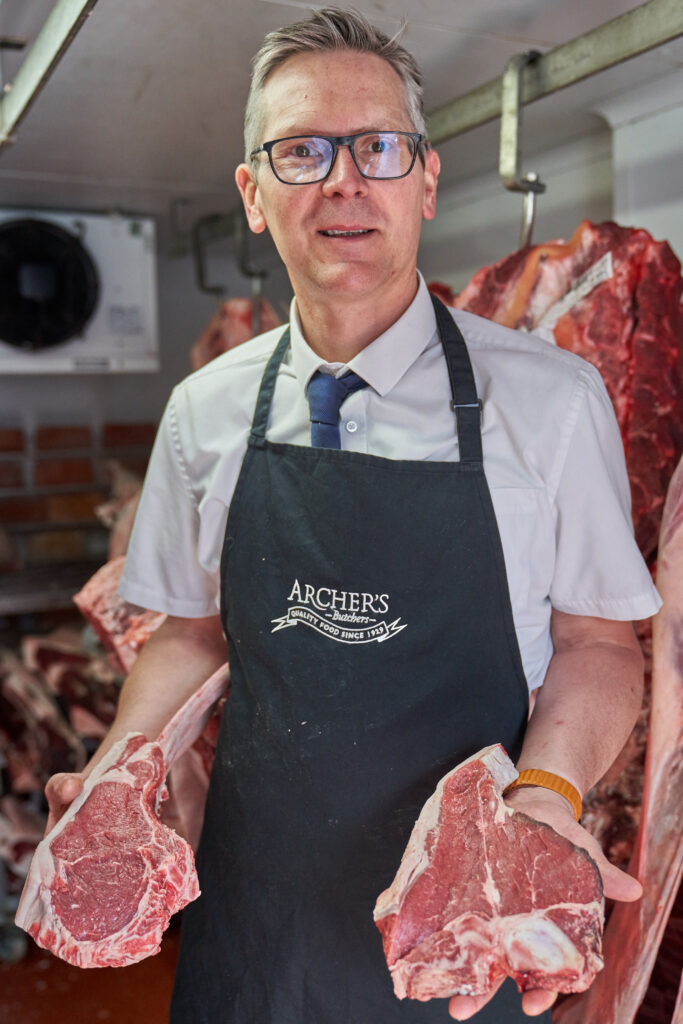
Lee:
I think that’s a great analogy of Heritage, but do the lines ever blur into the area of provenance, because to be honest, I always thought heritage and provenance were kind of the same thing.
Jamie:
Heritage and provenance are different. Meat provenance refers to the detailed history and origins of meat products, including the farm where the animals were raised, the conditions in which they were kept, their diet, and the methods used during processing.
Provenance is all about transparency and it’s increasingly important to consumers who are concerned about animal welfare, environmental sustainability, and the quality of their food.
Knowing the provenance of meat ensures that consumers can make informed choices about the products they purchase, supporting ethical practices and sustainable farming methods.
Look at what’s happening in the news at the moment. Britain imports 22% of its beef, 21% of its sheep meat and 49% of its pork, and relies on the EU for the bulk of those imports.
The UK left the EU four years ago, but it has taken some time for the government to implement new trade rules for produce travelling from the EU to the UK.
New border checks being phased in over the next year are going to affect pricing and logistics.
We don’t have to worry about this because to us, provenance means all of our meat is supplied as locally as we can find.
We have the highest standards of meat provenance. It’s the cornerstone of our operation. We meticulously select our suppliers, we only partner with farms that adhere to strict animal welfare guidelines and sustainable farming practices.
We regularly visit each supplier and because there’s such a commitment to these standards. Archer’s Butchery maintain close relationships with our farmers and farms.
By prioritising traceability and transparency, we know every product in their store not only meets ,but exceeds the expectations for quality and ethical sourcing.
Our customers have the confidence that they are purchasing the very best.
Archer’s Butchery Community Connection
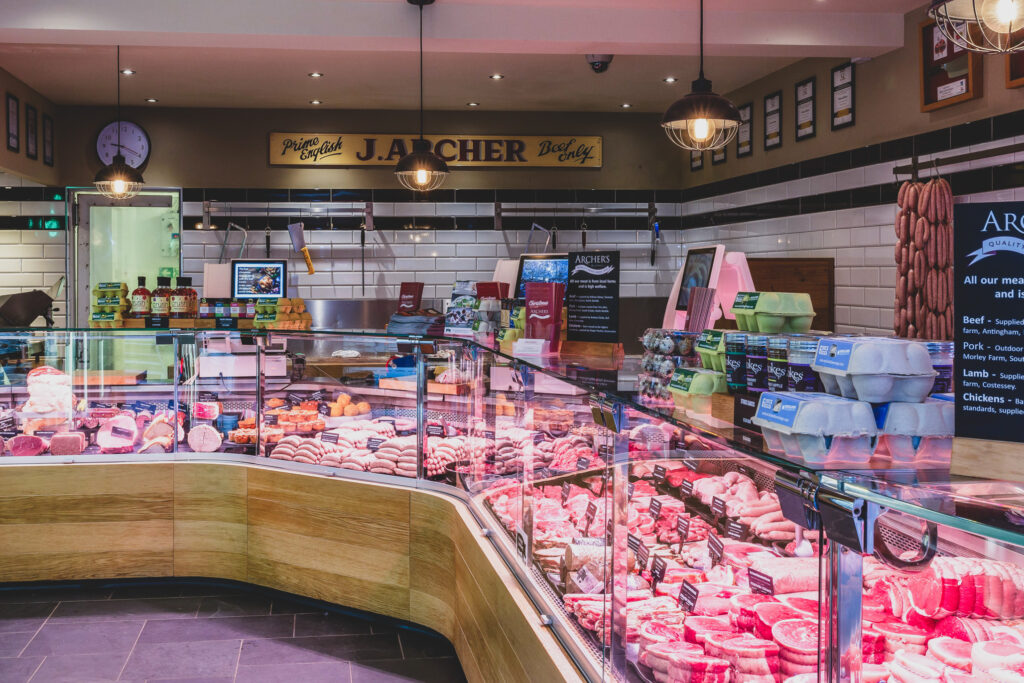
Lee:
We’ve touched on community, but what do you do to try and show that you’re not just another retailer focused on making money.
Jamie:
We understand that being a part of the local community means more than just selling meat; it means contributing to the local economy, supporting local farmers, and being a reliable source of high-quality products for our neighbors.
For us at Archer’s Butchery, community involvement is not just important; it’s essential. We’re situated in the heart of a number of large housing estates and on a main road running into Norwich.
We deliver around central Norwich, which is actually a big support service to our customers who simply can’t get to the shop.
We pickup the phone in person taking orders and we have a phenomenal social media engagement which is really important, because it means we have a huge community engagement.
We have actively engaged with the Norwich community through events, workshops, and collaborations with local businesses, to create a network of mutual support.
This connection helps us better understand and cater to the specific needs and preferences of our customers.
Also, a strong community customers can directly see and experience the ethical practices and high standards we uphold.
In 2024, this sense of community is a significant factor that distinguishes us from many other businesses, ensuring our continued success in an increasingly conscious market.
Lee:
We’ve touched on your suppliers, but can you give us a little more meat on the bone if you’ll excuse the pun.
Jamie:
Well, they do say if it’s not punny, it’s not funny.
At Archer’s Butchery, our bond with our suppliers is rooted in trust, quality, and a shared commitment to ethical farming. We’re back on the ethical stuff again.
It’s so important for businesses to have an ESG plan or a mission statement. You can’t afford to be left behind while the planet is slowly destroyed.
Norfolk Beef from Archer’s Butchery
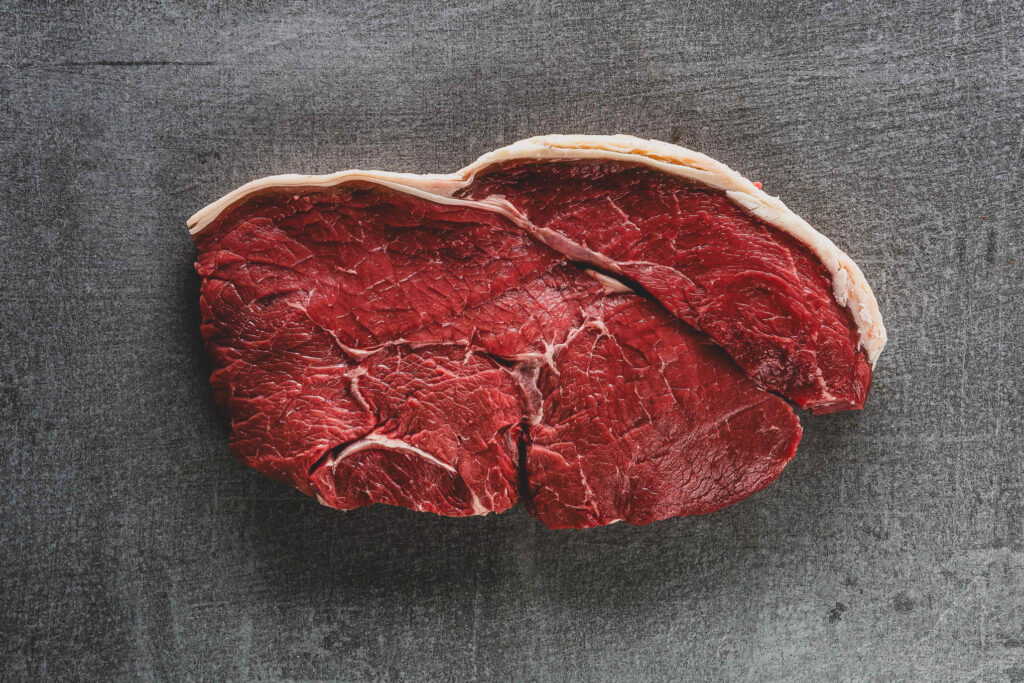
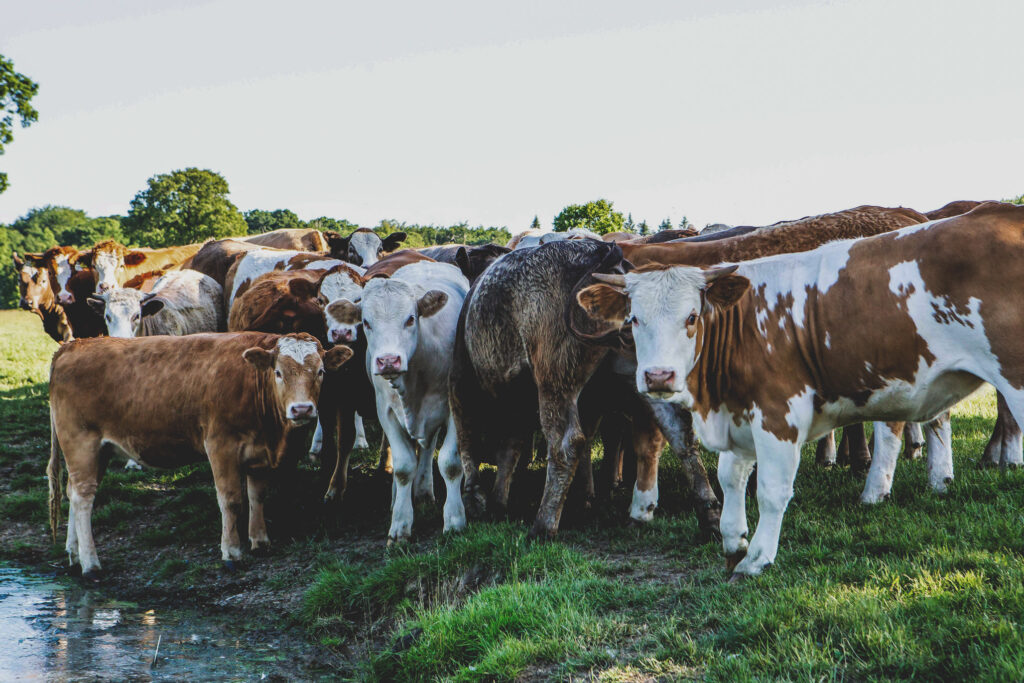
Our beef is very special. We partner with P O Almey & Sons from Tavistock Farm in Antingham, near North Walsham.
The Almey family, with their generations of experience, consistently provides us with top-quality cattle.
We source mostly Simmental and Limousin breeds, renowned for their lean, tender meat, which we cross with Hereford, Shorthorn, and Aberdeen Angus for their excellent marbling.
Their cattle graze freely in spacious fields, with at least one acre per animal, feeding on natural grasses, wildflowers, and shrubs, with access to a natural water source.
This not only ensures the welfare of the cattle but also promotes biodiversity and sustainability.
Our pork comes from Tim Allen’s farm at Morley, part of the Holkham Estate in North Norfolk.
Tim, a third-generation farmer, breeds top-quality pigs using a mix of native breeds like Hampshire, Landrace, and Large White, producing pork that’s succulent with excellent marbling.
All our pigs are outdoor-reared from birth to slaughter and hold both “RSPCA Assured” and “Red Tractor” certifications, ensuring the highest welfare standards.
Lamb from Archer’s Butchery
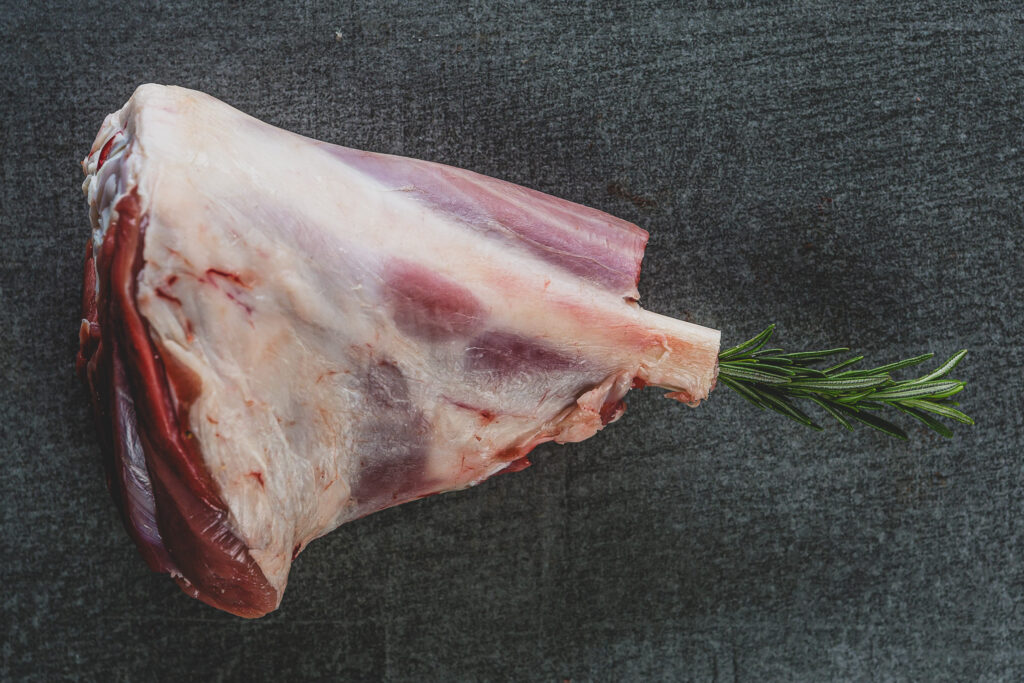
For lamb, we rely on HG Blake Ltd, a family-owned abattoir in Norfolk known for their high-welfare practices.
They source their lamb from East Anglian farmers who adhere to the “Quality Standard Mark” (QSM). We primarily use Texel sheep, crossed with native breeds like Suffolk or Beltex, providing a full flavour and excellent meat-to-bone ratio.
Chickens
Our free-range chickens are supplied by Sutton Hoo in Suffolk. Their focus on high welfare means the birds roam freely over 40 acres of meadows, living in small groups in mobile houses without artificial lighting.
These slower-growing chickens, reared for an average of 10 weeks, develop a richer, more succulent flavour thanks to their natural diet and extended growing period.
At Archer’s Butchery, these trusted relationships with our suppliers ensure that we provide only the finest quality meat, produced sustainably and ethically, to our customers in Norwich.
Lee:
Finally Jamie, looking ahead… What do you think the future of butchery looks like in the UK and do you think the emergence ion AI will have an affect on Archer’s Butchery as technology advances.
Jamie:
I wish I had a crystal ball to answer that. It’s a hard question to answer because each is moving at such a fast rate.
I personally think the future of butchery in the UK over the next 25 years is set to be shaped by technological advancements, changing consumer preferences, and a growing emphasis on sustainability and ethical practices.
It leads us straight back to the whole sustainability area that I’ve already touched on.
As consumers become more conscious of where their food comes from and how it is produced, butcheries will increasingly focus on transparency, provenance, and high standards of animal welfare.
It’s a huge trend and consumers care more and more about where the food originates.
This trend will likely lead to a resurgence in local and artisanal butcheries that emphasise quality over quantity.
AI is poised to play a role in the evolution of farm-to-fork. Advanced AI technologies can streamline various aspects of the supply chain, from optimising farming practices to enhancing traceability and ensuring food safety.
On the farm, AI can be used to monitor animal health, manage feed and water systems, and even predict and prevent diseases, leading to more efficient and humane farming practices.
In the butchery, AI can assist with inventory management, predicting customer demand, and reducing waste.
Additionally, AI-driven traceability systems can provide consumers with detailed information about the origins and journey of their meat products.
Overall, the integration of AI in butchery and farming will not only improve efficiency and sustainability but also enhance the overall customer experience by providing greater transparency and assurance of quality.
It won’t ever replace butchery skills. Only years of experience and knowing the animal inside and out, makes somebody a master butcher. But as tech continue to evolve, it will play an increasingly vital role in shaping the future of the butchery industry in the UK.
We already use intuitive systems to monitor stock, customer purchasing patterns and the levels of stock we need to produce to ensure our counters have sufficient produce to sell, but honestly, the speed at which AI is developing, it’s anybody’s guess where we’ll end up.
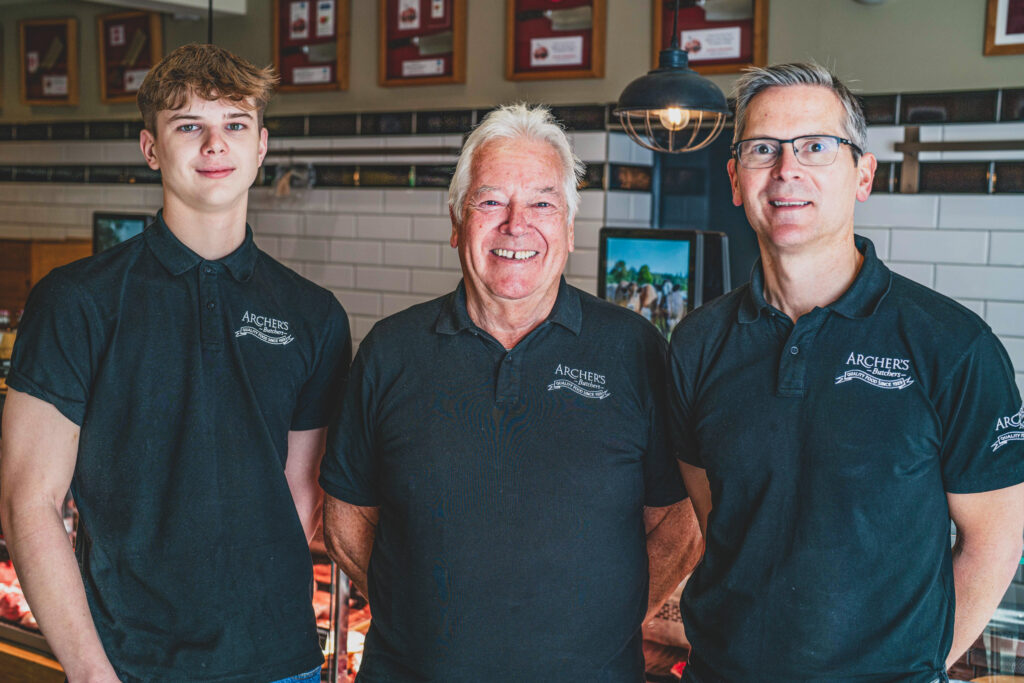
Lee:
That’s about everything from me Jamie. Before we wrap up, is there anything else you;d like to tell your readers
Jamie:
Thanks for taking the time today Lee to come and speak with me. It’s actually been a chance to take a step back and think about where we’ve come as a business over the past 90 odd years. Obviously I can’t take credit for the whole of that time as much as I’d like to.
When you focus constantly on the shop, the business, your staff and your customers, you seldom have an opportunity to look at everything you have achieved. So it’s been a chance to reflect today, and that’s fantastic.
For me, it’s about maintaining the values we have in place and constantly trying to improve the way we work, being responsive to our customer’s, about what products they’d like to see on our shelves and their experiences shopping with us.
Our social media channels are a hub of comments and engagement with people of every conceivable age and background and we love the fact that people want to actively speak with us and follow our content as opposed to simply coming in the shop to purchase our products.
People can join our community online. We’re on Facebook and Instagram, so we’d be grateful to anybody who wants to join us and we also have a twice monthly email newsletter that goes out o anybody who has subscribed. You can sign up by heading over to the Archer’s Butchery website at www.archersnorwich.com

